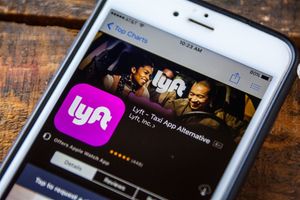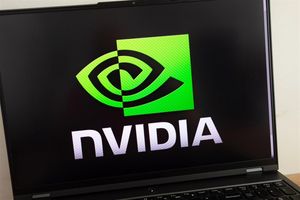Financial News
Virtualahan: Meet the Team Creating Access to Education and Employment Opportunities for People With Disabilities
By Raquel Aguilar
SOURCE: Cisco Systems Inc.
DESCRIPTION:
Now that the Cisco Global Problem Solver Challenge 2021 winners have been officially announced, we are excited for you to learn more about each winning team and the story behind each innovation. The Cisco Global Problem Solver Challenge is an annual competition that awards cash prizes to early-stage tech entrepreneurs solving the world’s toughest problems. Now in its fifth year, the competition awarded its largest prize pool ever, $1 million USD, to 20 winning teams from around the world.
I had the opportunity to meet with Ryan Gersava, Founder & President of Virtualahan Inc., who was awarded a $75,000 USD prize as the Regional First Runner-Up for APJC. Virtualahan is a virtual school which uses the equalizing power of technology to enable persons with disabilities and chronic diseases to develop the skills and mindset to become competitive employees and entrepreneurs in the global digital economy. Ryan founded Virtualahan in the Philippines in 2015 after personally experiencing employment discrimination due to his chronic disease, a daily struggle endured by members of his community and other excluded communities.
The name Virtualahan was derived by fusing together the English word ‘virtual’ and the Filipino word ‘eskwelahan’ which translates to ‘school.’
What problem is your technology solution trying to solve?
Ryan: We are solving the root causes of unemployment for persons with disabilities and other excluded communities in the Philippines due to outdated labor practices. For example, it’s still a part of the pre-employment process to consent to a medical examination and disclose your diagnosis to obtain an entry-level job.
The Philippines was one of the first countries in Asia to pass a law protecting persons with disabilities in 1992, however, outdated and illegal labor practices continue to persist. These practices have become ingrained in the workplace, causing employment discrimination by filtering out candidates like me who have an incurable disease or disability from participating in the workforce.
Another root cause for unemployment which Virtualahan is addressing is inaccessibility to training programs and the education system. While a four-year college degree is a requirement for most entry-level jobs, there are very few higher learning institutions in the Philippines equipped to provide educational services to talented individuals with disabilities. These institutions are usually located in Manila and other major cities, far away from rural areas. A barrier the community faces is access to transportation. Public transportation vehicles such as buses are not equipped with wheelchair lifts or ramps. If you are unable to get yourself to school, then you’ve already lost half the battle.
Can you explain how the solution works?
Ryan: We used the equalizing power of technology to create a virtual school that makes it possible for a person with autism, a person who is deaf, a person who is blind, a person with cancer to be together in the same learning environment from the comfort of their own homes. This breaks down transportation and infrastructure barriers. Since teachers are a part of the community, they extend empathy and understanding towards their students which is beneficial in providing instruction.
Virtualahan is our attempt to create a new education model which prepares students for competitive employment without requiring a four-year college degree. Our five-week digital skills training program includes courses on digital marketing, data management & analysis, website design & development, graphic design and content marketing, all geared towards employment. Training is followed by a two-week internship with one of Virtualahan’s partners and three weeks of job coaching. Students also receive support through life-coaching services led by our resident psychologist to help restore their dignity and build emotional resilience.
They are encouraged to pay it forward by becoming advocates and changemakers within their respective organizations. A large portion of the program’s success is driven by the will of the community to change the employment landscape of persons with disabilities and other excluded communities including single mothers, out of school youth, incarcerated individuals and internally displaced populations here in the Philippines, in Asia Pacific, and beyond.
What inspired you to develop this solution?
Ryan: I wouldn’t say I was inspired to develop Virtualahan—I was forced to. Nobody would employ me, so my best option was to employ myself. I came from a family with no business background whatsoever. I’m the youngest of ten children. Both of my parents are farmers and neither of them finished high school. Having lived in extreme poverty, I had a different dream. I dreamt of becoming a doctor or a lawyer, somebody who could break the cycle of poverty, not just financially, but emotionally and stigmatically.
How will winning a prize in the Cisco Global Problem Solver Challenge help you advance your business?
Ryan: We are using the Cisco funds to strengthen the capacity of Virtualahan to scale our impact formula through social franchising by upgrading our technology platform and obtaining the resources to accelerate. We’ve made a conscious decision as a community to refrain from expanding Virtualahan to train thousands of students a year. Instead, we intend to help other organizations replicate our program by giving them access to our technology, curriculum, experts, instructors, teachers, and impact formula because we believe that other organizations can best solve employment disparities within the specific context and communities they serve.
Currently, we are partnering with local government units and other organizations here in the Philippines. Our dream is to onboard 100 organizations to produce 100 talents per year. Collectively, that’s 10,000 talents who we can provide employment opportunities to. Our greater dream is to make Virtualahan obsolete—to normalize the work we are doing and make inclusivity a part of the everyday experience for persons with disabilities. We’re very grateful that Cisco is supporting our dreams.
How has the global pandemic impacted your work?
Ryan: The global pandemic affected members of the Virtualahan community on a personal level as access to necessary medical care for those with disabilities and chronic diseases was significantly impeded. The pandemic has accelerated our work. Other organizations who once questioned our legitimacy because we are a virtual organization have come to respect and understand the difficulties in operating virtually. When the pandemic started, we partnered with the government to launch a national program to help displaced workers who were impacted. Recently, the Philippine Department of Labor and Employment issued a memorandum to all their regional offices across the country stating the need to prioritize Virtualahan graduates for employment facilitation efforts being implemented in their respective regions. This was a huge win for us!
What advice do you have for other social entrepreneurs?
Ryan: Ensure that you are building personal sustainability as you are building organizational sustainability. I have been very passionate about the work I do. In the process, I have developed some battle scars that I have to deal with for the rest of my life. A lot of social entrepreneurs become engrossed in running a business, developing impact and serving the most vulnerable communities that they disregard their symptoms of burnout, depression and anxiety rather than addressing them. Make sure you prioritize your own well-being and have a mighty village behind you to offer support.
Stay tuned for more articles in our blog series, featuring interviews with every Cisco Global Problem Solver Challenge 2021 winning team!
KEYWORDS: NASDAQ: CSCO, Virtualahan, cisco systems

More News
View More





Quotes delayed at least 20 minutes.
By accessing this page, you agree to the following
Privacy Policy and Terms Of Service.



